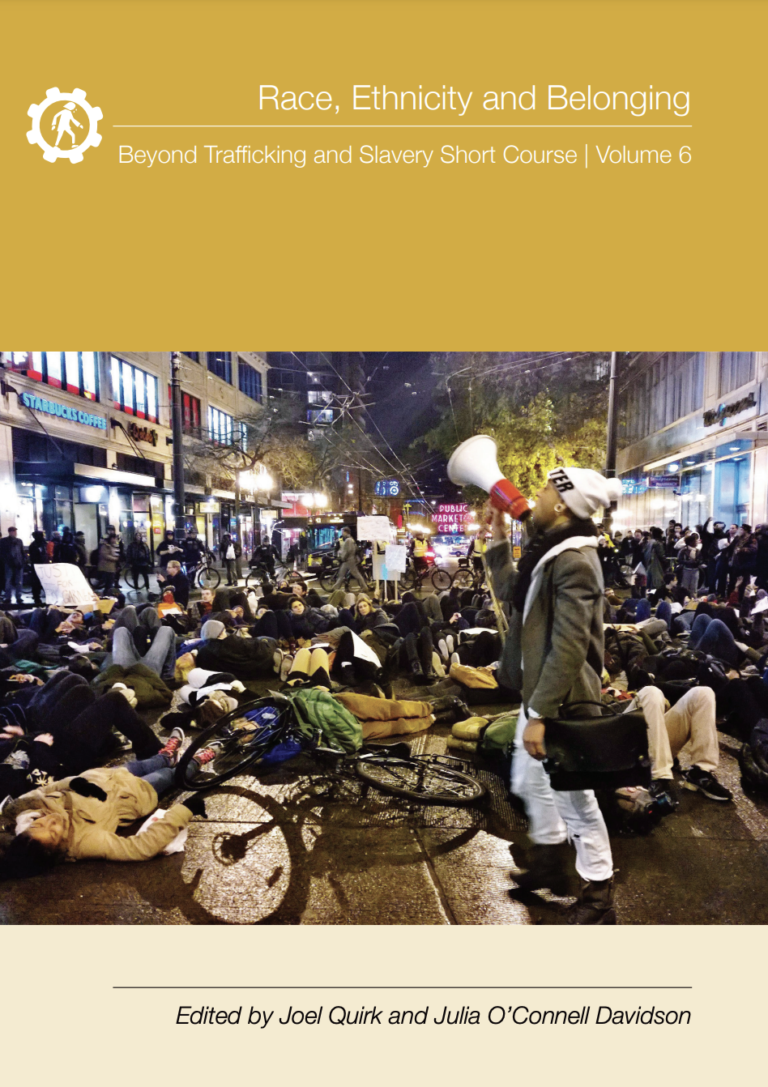Edited by Joel Quirk and Julia O’Connell Davidson.
This is the sixth volume of the series Beyond Trafficking and Slavery Short Course.
Slavery cannot be reduced to a chapter in history that is now closed, but must instead be regarded as a continuing and fundamental wound. As recent campaigns around ‘black lives matter’ and the prison industrial complex have further demonstrated, the idea of race—and racism as a system of domination—are intimately bound up with the history and legacies of transatlantic slavery. Despite their professed concern with slavery today, self-proclaimed ‘modern-day abolitionists’ have remarkably little to say about slavery and racism. They instead argue that we need to think about poverty, rather than race, since ‘modern slavery’ is colour blind. This book seeks to expose the profound limitations of this popular approach. Over the course of twenty chapters, some of the world’s leading experts illustrate how and why racism and other forms of discrimination continue to shape contemporary patterns of marginalisation, exclusion, and government and corporate complicity.

